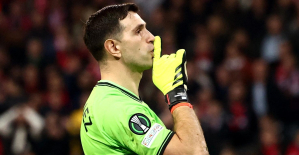”One morning, when the urge fell upon me to take a walk...”
With these words begin one of the last longer prosastycken as Robert Walser wrote, ”the Walk”.
have been so strongly associated with walking for Walser. In 1920, the same year as this story was published in book form, walked more than 120 kilometers from Biel to Zurich to participate in a reading and shortly thereafter he went on foot from Biel to Geneva, an even longer stretch. Without the feeling of walking, he wrote, ”I could neither write half a letter more, or produce a poem in verse or prose. Without walking I would be dead, and my profession, which I love passionately, I had been forced to give up a long time ago.”
There was a time when this swiss author was widely read and appreciated. Robert Musil and Elias Canetti belonged to his admirers, Franz Kafka as well. The latter could quote long passages from his novels by heart. During his barely decade-long stay in Berlin between 1905 and 1913, he was unlikely productive. All of his major novels were added over the years, one of them, ”the Assistant” (1908), in a shorter time than six weeks.
productivity ceased, it is difficult to say. Certainly played external circumstances. After the outbreak of war in 1914, the contraction in the market for the kind of texts Walser contributed with short stories, causeries, prosaskisser – and he was forced to return to Switzerland, to födelsestaden Biel and Bern, where he were limping themselves out in different occupations. He continued to write for the newspapers that received the contribution, but even though he was accustomed to straitened circumstances it became increasingly difficult for him to cope. After a breakdown, he writes on the family's advice in that mentaltpatient and he will spend the remaining three decades of his life in various institutions – first in Waldau, ago in Herisau in northeastern Switzerland – occupied with the paste bags and scrubbing floors.
During the period before and just after it that he put into himself is, however, something strange. It is as if the absence of the external requirement (to write in a way suitable for publication) an internal inhibition to let go of. Walser replace bläckpennan against blyertsstiftet and the expensive paper against what the odd material that happen to be at hand: album covers, brevbaksidor, business card, tickets. He adapts in addition, the handwriting according to the format and develop a microscopic handwriting that proves to be so opaqueness that it will not be until long after the Walsers death before you understand that it is not a galnings cipher without real letters in fully readable, coherent texts. The German publisher Suhrkamps full edition of these blyertsmanuskript, which ended in the year 2000 after nineteen years of tolkningsarbete, covering more than five hundred mikroskriftsark in sex tapes of over two thousand pages.
Robert Walser 1939. Photo: Carl Seeligin the anonymity managed to achieve what has been his quest: to find a language for the fleeting observation or inspiration, a language which itself bar the omedelbaras and flyktigas mark. There are no requirements on an internal logic, a coherent form or a comprehensible plot in the texts. They can be short or long. They begin when an association is instituted and ending when associationsflödet ceases.
there is Often a spoken, a reader or perhaps medflanör, such as that for the word to turn to or tell. But at the same time, there is something monologiskt over the language which makes you understand that what matters less is what is said than anything said. Walter Benjamin has written that the purpose of each new meaning of the Walser is to get the reader to forget the immediately preceding. It is the strange thing with these late texts: that they manage to be so tygellösa and konstfärdiga, him and self-conscious, at the same time.
of the Walsers mikroskrifter for the first time in English in a well-done translation by Peter Handberg. The publisher has, appropriately enough, complemented the sample with the above-mentioned short story ”the Walk” and to these two volumes annexed ”Walks with Robert Walser”, a mixture of the commemorative book will be produced and samtalsbok, written after the Walsers death of the author and publisher, Carl Seelig, a close friend of the author who during hospitalization adopted the role as his guardian.
During several decades do the long hikes in the hills of Appenzell and Sankt Gallen and Seelig writes afterwards carefully down everything that is said during the talks. Walser, who now stopped writing for good, and closed in behind a façade of polite grumpiness, talking reluctant about his writing. But for beundraren Seelig, there are other ways to approach the subject. Walsers rapture at the sight of a landscape, even if it is shrouded in clouds or obscured by the rain, or the loving attention he devotes the most trivial things, is telling enough.
Read also the Thomas Götselius on Robert Walser: ”a Literary play with encumbrances”.
, it you will notice immediately, is his attraction to the monotonous, the repetitive, the not differ. This is based on an insight that it truly eye-catching, paradoxically, prevents us from seeing. A real vision is about to get a glimpse of the permanent in the momentary or transient, that which is otherwise not obviously promote the sale of any look. The object of the writing, or for the associationsrus preceding skrivakten, is of Walser usually the oansenligaste you can think of.
One of the mikroskrifterna employs, for example only with a baby and a dog playing with a surface of the beer mats. Walser describes the självförglömmelsens vertigo that occurs when nothing stands in the way of it happens to get one's attention. I write ”happen” because the spontaneity is important: it is about the moments that arise and pass away without the involvement of someone's will. You do understand that the Walser, for every step he took, was the very human the riddle on the tracks. So this is called it in a piece in ”the Walk”:
the kind of ideas and impulses creeping to the wanderer, so that he in the midst of their diligent, painstaking time must stop and listen, because he, again and again, bemused by the strange impressions, of andemakt, suddenly has the enchanting feeling that he sinks down into the earth then an abyss opened before the dazzled and confused tänkarens and diktarens eyes. The head want to fall off his body. The otherwise so livsfulla the arms and legs are like petrified. The landscape and the people, sounds and colors, faces and figures, clouds and sunshine flutters as the silhouettes around him; he asks himself: Where am I?”
the Talks between poland and the Czech republic Seelig lasts almost right up to the Walsers, the sudden death, characteristically enough, just during a walk, on christmas day 1956. Even during the five war years, then Seelig will have to apply for permission to visit his friend, makes the long hikes. During one of these stops the to at a railroad crossing while the train with soldiers of the far past and at the brink of the lake of Constance, they see how the allies shed bombs over Germany. But Walser does not seem particularly concerned. Nothing is able to disrupt the monotony, the rhythm, and ron, who is in the the highlands where he had taken refuge.
Perhaps it was the price, Walser had to pay for the rapture he found in the simple and mundane: in their asylum live cut off from the rest of the world, blind to the larger quakes, which lasted around.
Read more reviews by Steve Sem-Sandberg, as, for example, if Alice Zeniters ”the Art of losing”.

 Sydney: Assyrian bishop stabbed, conservative TikToker outspoken on Islam
Sydney: Assyrian bishop stabbed, conservative TikToker outspoken on Islam Torrential rains in Dubai: “The event is so intense that we cannot find analogues in our databases”
Torrential rains in Dubai: “The event is so intense that we cannot find analogues in our databases” Rishi Sunak wants a tobacco-free UK
Rishi Sunak wants a tobacco-free UK In Africa, the number of millionaires will boom over the next ten years
In Africa, the number of millionaires will boom over the next ten years WHO concerned about spread of H5N1 avian flu to new species, including humans
WHO concerned about spread of H5N1 avian flu to new species, including humans New generation mosquito nets prove much more effective against malaria
New generation mosquito nets prove much more effective against malaria Covid-19: everything you need to know about the new vaccination campaign which is starting
Covid-19: everything you need to know about the new vaccination campaign which is starting The best laptops of the moment boast artificial intelligence
The best laptops of the moment boast artificial intelligence Bitcoin halving: what will the planned reduction in emissions from the queen of cryptos change?
Bitcoin halving: what will the planned reduction in emissions from the queen of cryptos change? The Flink home shopping delivery platform will be liquidated in France
The Flink home shopping delivery platform will be liquidated in France Bercy threatens to veto the sale of Biogaran (Servier) to an Indian industrialist
Bercy threatens to veto the sale of Biogaran (Servier) to an Indian industrialist Switch or signaling breakdown, operating incident or catenaries... Do you speak the language of RATP and SNCF?
Switch or signaling breakdown, operating incident or catenaries... Do you speak the language of RATP and SNCF? The main facade of the old Copenhagen Stock Exchange collapsed, two days after the fire started
The main facade of the old Copenhagen Stock Exchange collapsed, two days after the fire started Alain Delon decorated by Ukraine for his support in the conflict against Russia
Alain Delon decorated by Ukraine for his support in the conflict against Russia Who’s Who launches the first edition of its literary prize
Who’s Who launches the first edition of its literary prize Sylvain Amic appointed to the Musée d’Orsay to replace Christophe Leribault
Sylvain Amic appointed to the Musée d’Orsay to replace Christophe Leribault Skoda Kodiaq 2024: a 'beast' plug-in hybrid SUV
Skoda Kodiaq 2024: a 'beast' plug-in hybrid SUV Tesla launches a new Model Y with 600 km of autonomy at a "more accessible price"
Tesla launches a new Model Y with 600 km of autonomy at a "more accessible price" The 10 best-selling cars in March 2024 in Spain: sales fall due to Easter
The 10 best-selling cars in March 2024 in Spain: sales fall due to Easter A private jet company buys more than 100 flying cars
A private jet company buys more than 100 flying cars This is how housing prices have changed in Spain in the last decade
This is how housing prices have changed in Spain in the last decade The home mortgage firm drops 10% in January and interest soars to 3.46%
The home mortgage firm drops 10% in January and interest soars to 3.46% The jewel of the Rocío de Nagüeles urbanization: a dream villa in Marbella
The jewel of the Rocío de Nagüeles urbanization: a dream villa in Marbella Rental prices grow by 7.3% in February: where does it go up and where does it go down?
Rental prices grow by 7.3% in February: where does it go up and where does it go down? With the promise of a “real burst of authority”, Gabriel Attal provokes the ire of the opposition
With the promise of a “real burst of authority”, Gabriel Attal provokes the ire of the opposition Europeans: the schedule of debates to follow between now and June 9
Europeans: the schedule of debates to follow between now and June 9 Europeans: “In France, there is a left and there is a right,” assures Bellamy
Europeans: “In France, there is a left and there is a right,” assures Bellamy During the night of the economy, the right points out the budgetary flaws of the macronie
During the night of the economy, the right points out the budgetary flaws of the macronie These French cities that will boycott the World Cup in Qatar
These French cities that will boycott the World Cup in Qatar Europa Conference League: the semi-final flies to Lille, which loses to the wire against Aston Villa
Europa Conference League: the semi-final flies to Lille, which loses to the wire against Aston Villa Lille-Aston Villa: Cash disgusts Lille, the arbitration too... The tops and the flops
Lille-Aston Villa: Cash disgusts Lille, the arbitration too... The tops and the flops Handball: Les Bleues in the same group as Spain at Euro 2024
Handball: Les Bleues in the same group as Spain at Euro 2024 Europa Conference League: for Létang, Martinez “does not have the attitude of a high-level athlete”
Europa Conference League: for Létang, Martinez “does not have the attitude of a high-level athlete”


















